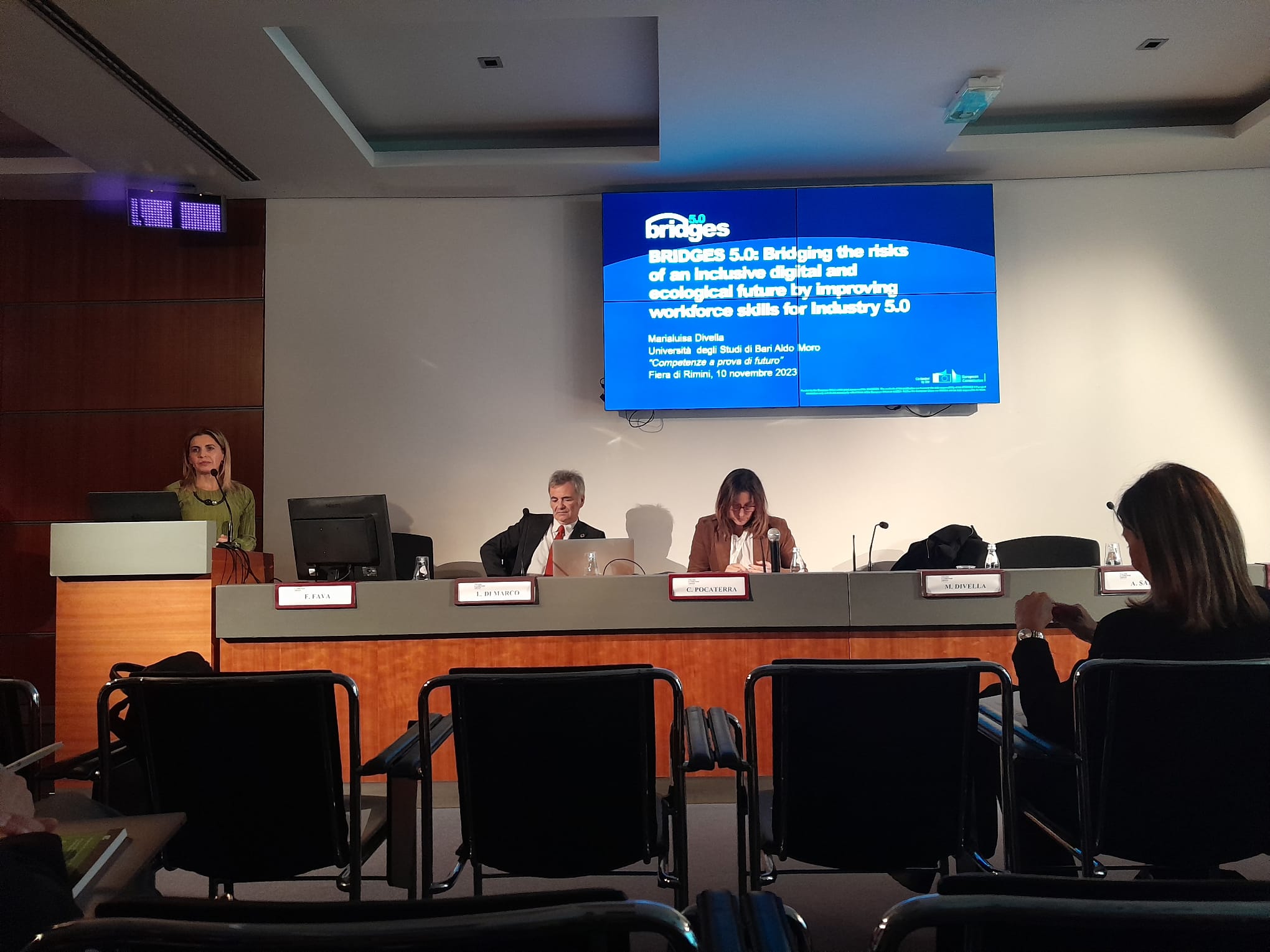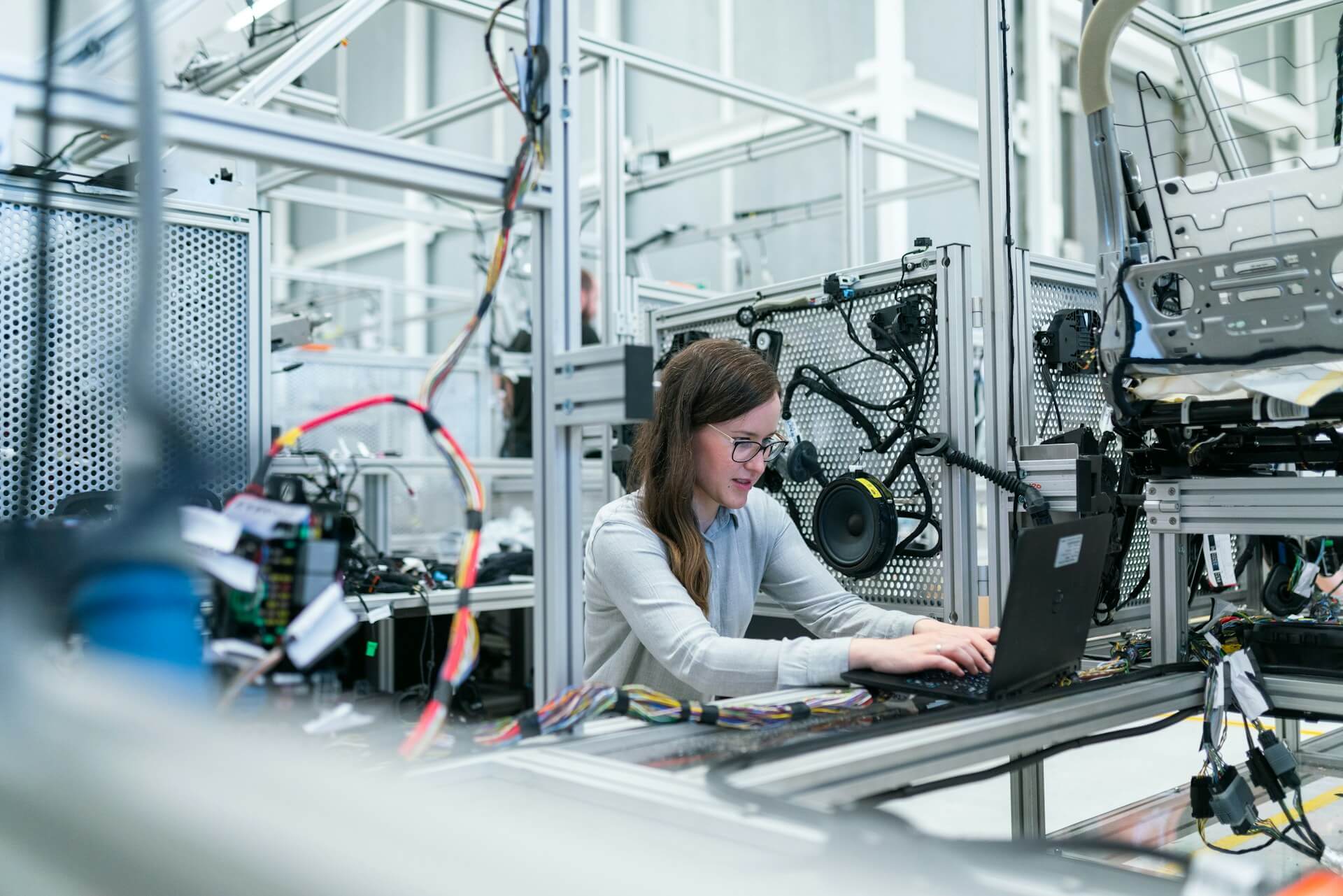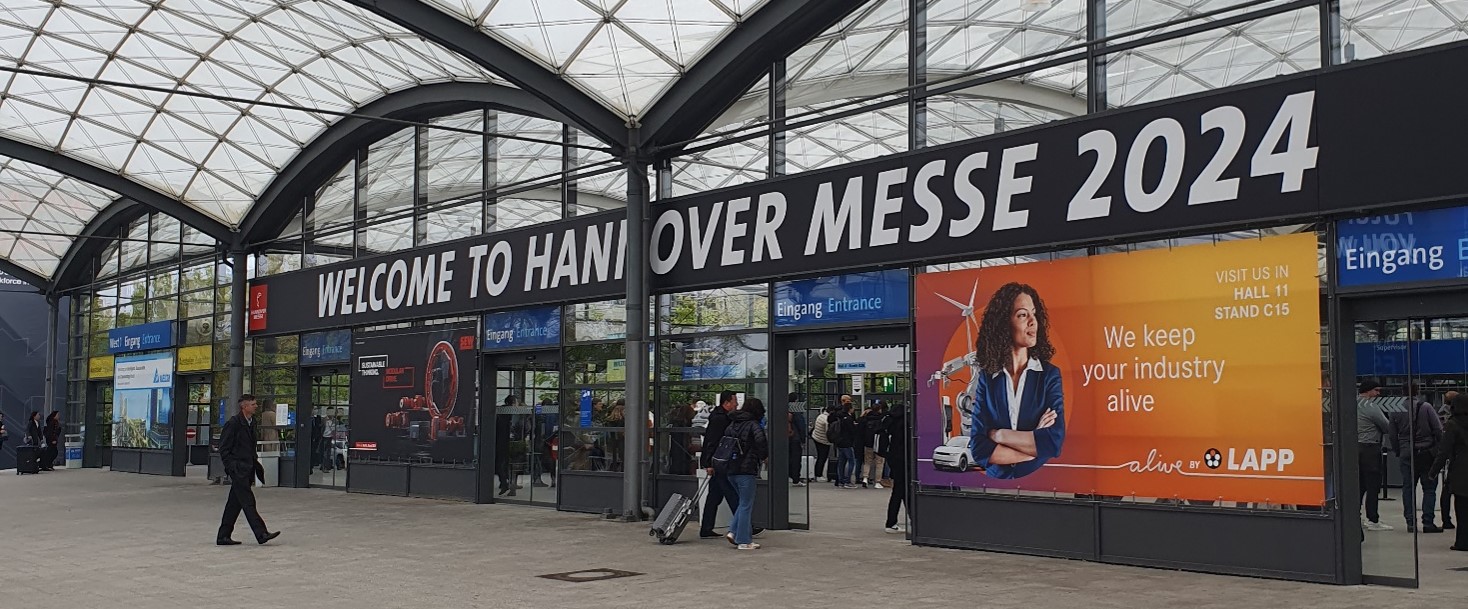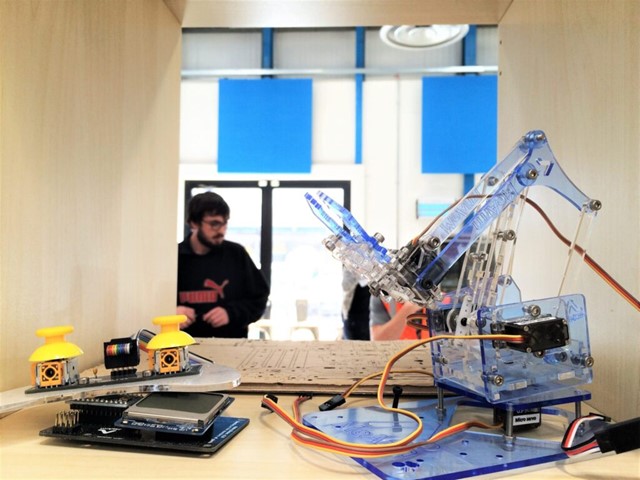
Reflections from the Ecomondo conference in Rimini
Ecomondo, the pivotal event in Europe and the Mediterranean region for technological and industrial innovation in the green and circular economy sector, recently unfolded in Rimini from November 7th to 10th, 2023. It served as catalyst for crucial conversations on competence development for digital and ecological transition.
The Future-Proof Skills conference, organised by the Italian Alliance for Sustainable Development (ASviS), aimed to illuminate the complexities surrounding the workforce’s evolution in the face of new technologies and environmental imperatives. As the world grapples with the challenges posed by climate change and the rapid evolution of technology, the meeting shed light on the dual impact of new technologies, simultaneously causing job losses and creating opportunities that demand novel skill sets.
Here, I delve into ten key themes that emerged during the conference, shedding some light on the main challenges of developing new competences for the transformative industry 5.0 journey ahead.
I. The dual impact of New Technologies
The advent of new technologies marks a paradigm shift in the employment landscape. At the heart of this shift lies a dual impact: the loss of traditional jobs and the simultaneous creation of new opportunities demanding specialised competences. This duality paints a nuanced picture, urging us to view the evolving job market not only through the lens of job displacement but also as a canvas for innovative roles, skills, and capabilities.
II. Bridging the Gap: Skills Mismatch in the Labour Market
A glaring challenge underscored during the conference was the misalignment in the labour market between existing competences and those in demand. The evolving needs of industries, driven by digitalisation and ecological considerations, pose a formidable challenge to a workforce that may find itself equipped with obsolete skills. Bridging this gap requires a multidimensional strategic approach to retraining and upskilling, ensuring that available workforce remains relevant in rapidly changing job markets.
III. Persistent Challenges in Competence Development
Despite acknowledging the necessity of developing new competences for the digital and ecological transition, the meeting shed light on the persistent challenges hindering progress in Italy. Fragilities in the Italian education system, due to insufficient investments and limited quality of education policies, brain drain and the prevalence of NEETs (Not in Education, Employment, or Training), particularly in the southern regions, were among the issues discussed.
IV. Crucial Role of Universities and Industry Synergy
An urgent call for greater synergy between university and industry resonated throughout the conference. The traditional divide between academia and industry often results in a mismatch between educational offerings and the real-world demands of the job market. Establishing stronger connections between these two spheres is important for ensuring that educational offerings are aligned with industrial evolution, fostering a more seamless transition for graduates into the workforce.
V. Lifelong Learning: Designing New Systems for Continuous Education
A resounding consensus emerged regarding the need for new systems of education that cater to lifelong learning. The traditional model of education as a phase in life must evolve into a continuous process, adapting to the evolving demands of the job market. This necessitates the development of innovative training programs and platforms that support individuals throughout their careers, fostering adaptability and resilience in an ever-changing employment landscape.
VI. Shifting Focus to Organisational Training
While universities play a pivotal role, it has been emphasised that competence development must predominantly occur within organisations. This shift in focus highlights the imperative for companies to reinvest in the training of their personnel. Achieving an innovative and adaptive workforce necessitates a commitment from organisations to facilitate continuous learning within the workplace, acknowledging that innovative skills and capabilities development is an ongoing, dynamic process. However, it is essential to note that the investment in staff training encounters a significant challenge in the prevalent use of non-standard employment contracts, especially fixed-term contracts, in most European countries and particularly in Italy. This is because effective skills development requires a longer time horizon, also for allowing businesses to reap the benefits of such investments.
VII. Why Bridges 5.0?
In this context, the effective facilitation of digital and ecological transitions requires embracing new broader perspectives. Of particular significance is the emerging Industry 5.0 framework, designed to assist EU companies in change their vision and practices, harnessing their digital potential to achieve greater sustainability, human-centricity, and resilience. However, the goals of Industry 5.0 can only be achieved if workforce skills are redeveloped to make use of the newest technologies to their fullest extent. Therefore, the recently launched EU Horizon project, Bridges 5.0, will play a crucial role over the next four years. It aims to chart the evolution of jobs in the digital economy, identify skills gaps, and introduce innovative tools to assist companies in establishing new training systems. This will be vital for facilitating the on-the-job development of essential competencies, contributing to the advancement of both digital and ecological transition.
VIII. Sustainability, Human-centricity, and Resilience: Pillars of the Emerging Industry 5.0
Embracing sustainability, human-centricity, and resilience has been emphasised as crucial for EU industries to strategically chart their path towards a more enlightened and responsible era. In the perspective of Bridges 5.0, sustainability encompasses a commitment to environmentally and socially responsible practices and technologies. This commitment aims to minimise the environmental footprint of production, while also prioritising the health and safety of employees in the workplace. Human-centricity underscores the shift towards placing humans at the core of industrial processes, recognising the importance of human skills, creativity, and decision-making alongside advanced technologies. Therefore, it involves creating work environments that enhance the well-being of workers, fostering collaboration between humans and machines, and prioritising the development of human skills and capabilities that complement technological advancements, ensuring that technology serves humanity rather that the other way around. Resilience emphasises the ability of industries to adapt and thrive in the face of disruptions. This includes resilience to economic shifts, technological changes, and unforeseen challenges such as pandemics or natural disasters, especially with a view to mitigate their impact on employment and workers’ well-being.
IX. Entrepreneurs and Workers: Co-architects of Change
The evolving landscape of competence development casts both entrepreneurs and workers as co-architects of change. Entrepreneurs, as driver of economic activity, are urged to embrace the responsibility of shaping a workforce equipped for the digital and ecological future.
Simultaneously, workers are encouraged to be proactive in acquiring new skills, positioning themselves as active agents in their own professional evolution.
X. Challenges in Sectoral Specialisation: Addressing the Need for Strategic Industrial Policy
Amidst the dynamics of Industry 5.0, a critical aspect involves grappling with sectoral specialisation prevalent in various Italian regions. Many of these regions are inclined towards sectors with low added value, characterised by employment opportunities of modest quality and lower wages. Hence, beyond the emphasis on skill development, there arises a crucial need for strategic industrial policy choices. These choices should be geared towards cultivating specific sectors deemed essential not only for economic development, but also for absorbing the newly formed competencies. This highlights the necessity of aligning industrial policy decisions with the goal of fostering sustainable and high-quality employment opportunities.
Related articles
May 11, 2024








